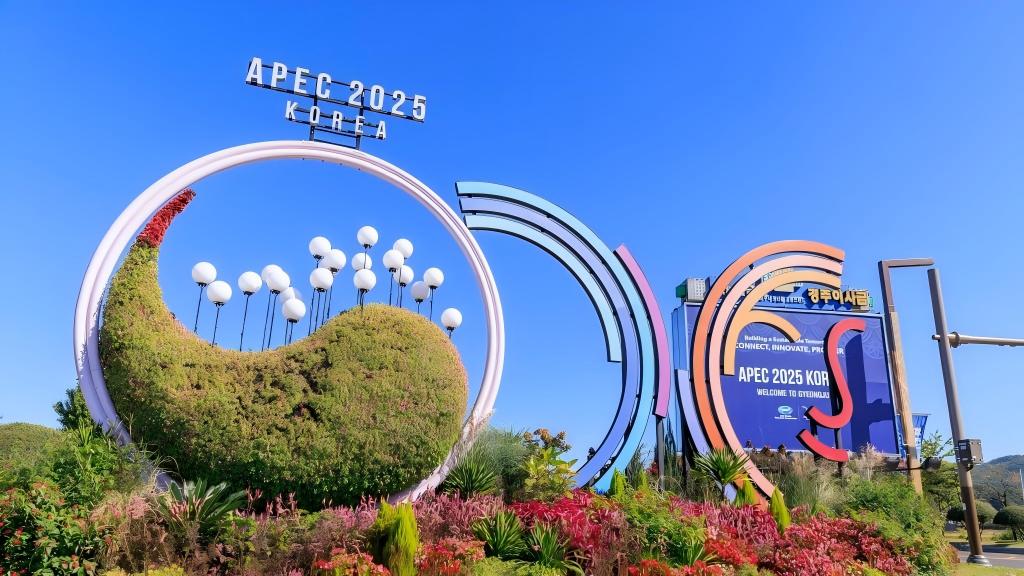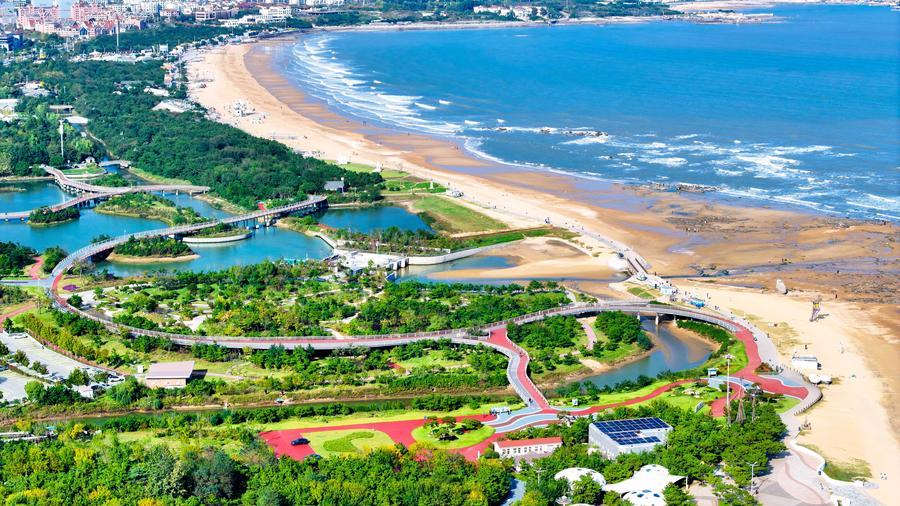China’s 15th National Games launches historic cross-boundary torch relay across Greater Bay Area
China's National Games celebrated a milestone on Sunday as its first cross-boundary torch relay was held simultaneously in Guangdong, Hong Kong and Macao, with one week before the Games opens.
Following the launch ceremony in the southern coastal city of Shenzhen, the torch relay started in Hong Kong, Macao, Guangzhou and Shenzhen - four key cities of the Greater Bay Area (GBA).
200 torchbearers from all walks of life participated in the event, including physicist Xue Qikun and former Olympic diving champion Yang Jinghui, according to the Xinhua News Agency.
At the launch ceremony, Meng Fanli, executive director of the Games' organizing committee who is also the governor of Guangdong Province,said that the torch relay is a vivid embodiment of both the Chinese sports spirit and the Olympic spirit, and it will surely gather tremendous strength to advance the great cause of building a strong nation and achieving national rejuvenation. He added that the relay also serves as a powerful demonstration of the advantages of the "one country, two systems" framework and the achievements of the GBA, drawing the world's attention more closely to Guangdong, the GBA, and China as a whole.
Following the relay, the torch flames from the four cities converged in Guangzhou on Sunday, at Guangdong Olympic Sports Center and were merged into a single flame, which will light the main cauldron at the opening ceremony of the 15th National Games on November 9, Xinhua reported.
Experts hailed the event as the most tangible manifestation of the GBA's connectivity, highlighting how the region's four major cities overcame geographical and administrative boundaries under the framework of "one country, two systems." They said the Games will set a new benchmark for regional collaboration in hosting large-scale events in the future.
Linking the Greater Bay Area
The simultaneous relay across Hong Kong, Macao, Guangzhou and Shenzhen was "a highly innovative and symbolic event," Nicholas Muk Ka-chun, a district councilor in Hong Kong, told the Global Times on Sunday. "It directly reflects the achievements of the area's connectivity, both physical and social."
According to the organizing committee, the relay combined on-the-ground and point-to-point segments to link city landmarks and highlight local characteristics. Logistics were streamlined so that torches, support equipment, and uniforms could all clear customs and reach destinations on the same day.
"The design of 'morning relay across four cities, afternoon flame convergence in Guangzhou' fully demonstrates the GBA's one-hour living circle," the committee said.
Muk added that this "one-hour living circle" reflects the daily experience of local residents. "It's quite normal for me to attend a class in Hong Kong in the morning, go to a meeting in Shenzhen at noon, and visit relatives in Guangzhou in the evening.
This efficiency is supported by infrastructure like the Hong Kong-Shenzhen-Guangzhou high-speed rail and the Hong Kong-Zhuhai-Macao Bridge, and the "soft connectivity" that allows young people in the Bay Area to access cross-city opportunities, he said.
The 15th National Games will also feature its first-ever cross-boundary competition - the men's individual road cycling race - set for November 8. The race will connect Hong Kong, Macao, Zhuhai and the Hengqin Guangdong-Macao In-Depth Cooperation Zone via the Hong Kong-Zhuhai-Macao Bridge, covering a total of 231.8 kilometers.
According to the event's official website, 104 athletes from across China, including from Hong Kong and Macao, will participate in the race. Riders will pass through border checkpoints six times but will benefit from "seamless customs clearance" through locally developed facial recognition and RFID technologies.
Innovation drives
The 15th National Games torch relay has introduced several innovations in organization, relay methods, and route design compared with previous editions. The relay features advanced technologies such as intelligent robots, autonomous vehicles, and low-altitude drones to carry or link segments of the flame, showcasing a futuristic approach and the deep integration of technology and sport.
Among the 200 torchbearers were physicist Xue Qikun as the No.1 torchbearer, Olympic diving champion Yang Jinghui, and representatives from Hong Kong and Macao.
Torchbearers at the National Games have always represented a set of values, and this time, having a scientist take the lead conveys the idea of "a strong nation in both science and sports," Guo Ai, a sports commentator based in Beijing, told the Global Times on Sunday.
In Shenzhen, a humanoid robot named Kuavo (Kuafu in Chinese), developed by Leju Robotics - made its debut as the world's first 5G-Advanced-equipped humanoid torchbearer. Designated the ceremonial "No. Zero Torchbearer," Kuavo carried a 1.6-kilogram torch and completed a 100-meter stretch in a human-like running posture.
"The robot not only represents a concentrated display of the advanced level of artificial intelligence and robotics technologies in Shenzhen and across China, but also symbolizes the perfect integration of technology and sportsmanship,'' said Muk.
In the past, the emphasis of torch relay was on the "human passing the torch," but this time, incorporating "technology passing the torch" is an exploration of how sports ceremonies can integrate intelligence and digitalization - a move that aligns with the broader trend of digital transformation in China's sports industry, noted Guo.
The "source flame" was extracted and ignited from combustible ice lying more than 1,500 meters beneath the surface of the South China Sea in September.
The National Games is the country's highest-level, largest-scale, and most influential comprehensive sports event. The 15th National Games features 34 major competitive items and 419 minor items. Guangdong will host most of the events, while Macao will be home to four events, including table tennis and women's 3x3 basketball, and Hong Kong will host eight, including golf, fencing and beach volleyball.
Photos
Related Stories
- First-ever cross-boundary torch relay held for China's National Games
- Historic torch relay for China's 15th National Games lights up Greater Bay Area
- First-ever cross-boundary torch relay held for China's National Games
- Macao's 50 torchbearers to relay in anticipation of National Games
- Wang Zifei takes second shooting gold at China's 15th National Games
- Macao marks 100-day countdown to National Games with citywide events
Copyright © 2025 People's Daily Online. All Rights Reserved.









